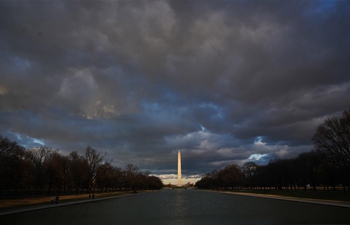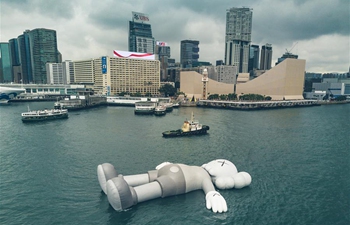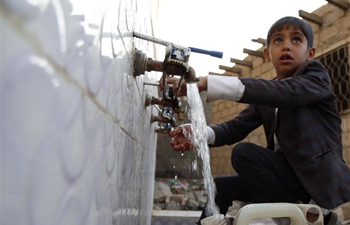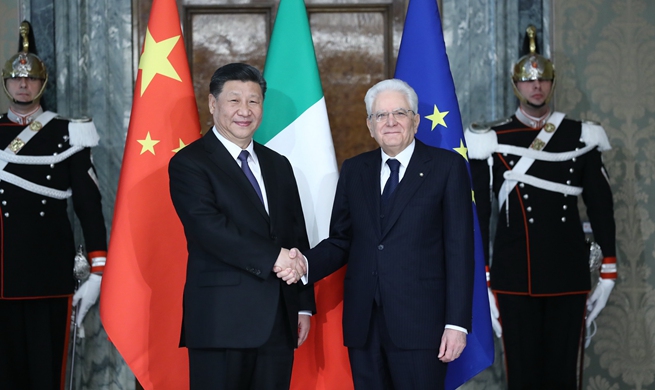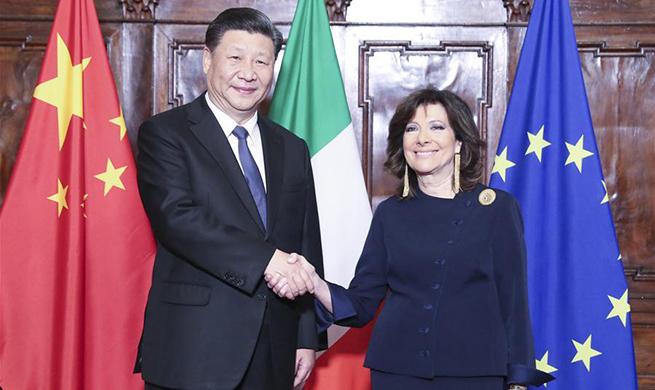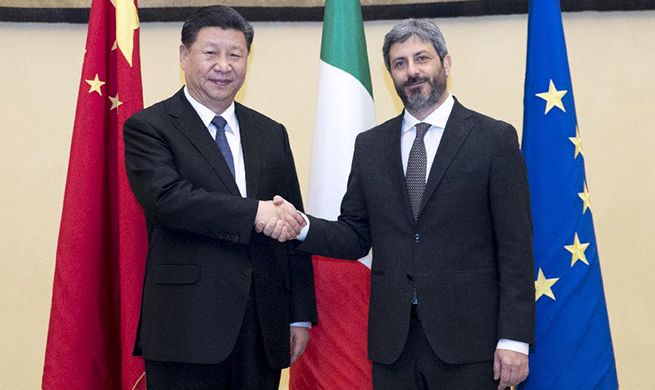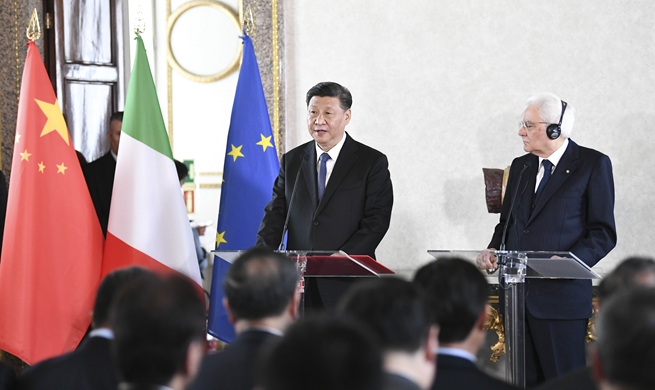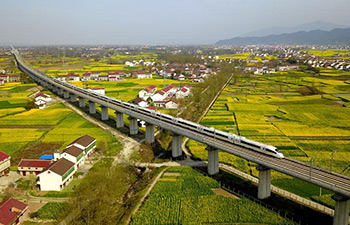by Murad Abdo
ADEN, Yemen, March 23 (Xinhua) -- After four years of internal military conflict, interventions of regional countries continue to push the Yemeni warring factions for new rounds of violence, said Yemeni experts and analysts.
Rather than providing a solution for the civil war that enters its fifth year, the regional interventions in Yemen's affairs merely added fuel to the fire and contributed to its longevity.
Yemeni experts and observers say tensions and divisions continue to deepen following four years of armed confrontations between the Iran-backed Shiite Houthi rebels and the government forces backed by Saudi Arabia.
Adel Al-Shuja'a, a politics professor from Sanaa University, pointed to the involvement of foreign and neighboring countries in Yemen's internal affairs as the main factor that aggravated the crisis in the war-torn country.
"The foreign interventions, particularly from the neighboring and regional powers, did not only provoke conflict in the country, but rather work on fuelling it," the professor told Xinhua.
"The major hindrances for any political settlement in Yemen are caused by the intervening countries that mainly concentrate on its own interests and neglect Yemen's interest," he said.
Al-Shuja'a expected that Yemen's conflict won't cease easily after four years of deadly conflict, saying the situation in Yemen, entangled with foreign interests, will be more complicated, even with the emergence of new political players in the fifth year.
"Yemen's political parties no longer have the ability to decide the fate of their country because they have fully submitted their decisions to external agents and have become mere tools of others," he concluded.
On March 25, Saudi Arabia and a group of Arab states began launching a large-scale air campaign against the Iranian-backed Houthi rebels, who invaded the capital Sanaa militarily and seized most of the northern Yemeni provinces.
Saudi Arabia's intervention aims to support the internationally recognized government of Yemen's President Abd-Rabbu Mansour Hadi, but war is still raging in various parts of the country.
Other Yemeni experts believe Yemen's current political parties are divided and do not have a clear vision for the war-ravaged Arab country, which is the main reason for the country's prolonged bloody conflict.
"Yemen is in a pressing need for an innovative national body that has the ability to outline a clear vision of the country that is still suffering from this conflict for the fifth year," Nabil Al-Sufi, a writer and political analyst, told Xinhua.
"The Houthis are a militant group with no possibility of becoming a political party, because they were designed as an Iranian experience and prefer to remain as the sole ruling power above all country's political parties," he explained.
It is impossible to achieve a political settlement in the existence of such divided parties and militant groups, Sufi concluded, as "every local party or group wants to be the decision-maker for this country alone."
Several rounds of peace talks were conducted between the two warring sides under the auspices of the United Nations and the international community, but failed to bring an end to the country's conflict and achieve permanent peace.
Last December, Yemen's government and Houthi rebels participated in UN-facilitated negotiations in Sweden and signed the Stockholm Agreement which called for the withdrawal of forces on both sides from the strategic city of Hodeidah after months of deadly fighting in the Red Sea port city.
It was highly hoped that the Stockholm Agreement on Hodeidah should pave the way for permanent peace in the impoverished Arab country as the first step to end years of suffering of Yemenis.
However, all provisions of the agreement were not implemented, and both Yemeni warring parties failed to withdraw their forces from the city's ports or surrounding outskirts and continued to prepare for new military escalation.
"There are a number of huge obstacles that delayed or stopped making progress toward a peaceful settlement to end the suffering of 30 million Yemenis," Abdul-Raqeeb Hidyani, a political observer and writer, told Xinhua.
"The regional countries leading the ongoing military operations in Yemen have the upper hand to terminate or escalate conflict in this country, but those countries involved in this crisis have different goals and agendas linked to their own interests and don't serve Yemen's stability," Hidyani explained.
The long-running Yemeni conflict has caused the world's worst humanitarian crisis. Currently, some 24 million Yemenis, or 80 percent of the entire population, need humanitarian aid and protection, with some 20 million lacking security of food, according to the United Nations.




